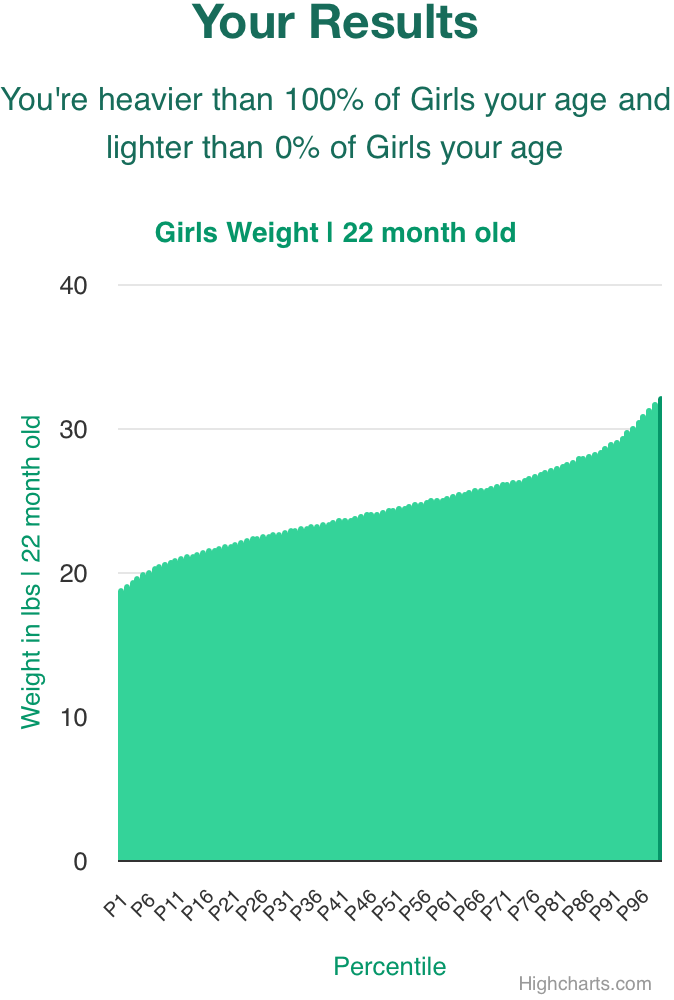Girls Weight chart in kgs for Toddlers 22 month old

General Summary: 22 month old girls weight
In most cases, weight measurements for 22 month old girls will be in the range between 9 and 14 kgs. The average weight for 22 month old girls is 11 kgs, according to the CDC and anonymized data from users.
All Results
Enter your weight measurements above to see how they compare
So far, we have recorded [0] weight measurements for 22-month-old girls on LifeMeasure!
(chart updates daily)
See more ages